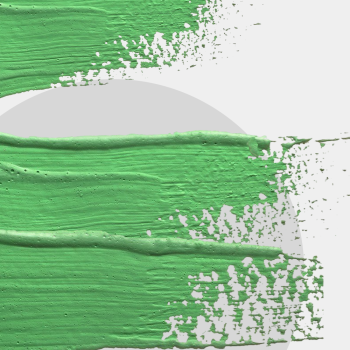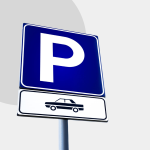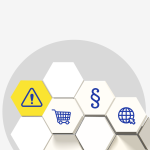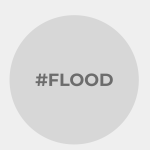
- Last year, the Trade Inspection Authority questioned 2.59% of the liquid fuel samples subjected to inspection – almost twice as many as in 2022.
- If you wish to check whether your station sells fuel that meets the standards, please visit the fuel map on the UOKiK website. This is also possible in the Yanosik navigation application that relies on the Office’s data.
Throughout the year, the Trade Inspection Authority inspects whether the fuels available on the Polish market meet the requirements. The entities subjected to inspections include fuel producers, wholesalers, storekeepers and entrepreneurs running petrol stations. The whole system is broken down into two parts: European and domestic. In the European part, the verified entities are selected in a draw conducted by the President of the Office as the managing party of the fuel quality monitoring and inspection system. In the domestic part, their selection depends upon signals from drivers, other authorities (e.g. the Police) and negative results from previous years.
“The first fuel quality inspection carried out in 2003 revealed that as many as 30% of the tested samples did not meet the requirements. The measures taken have successfully removed numerous irregularities from the market. For several years, the percentage of irregularities has been around below 4%. Although the number of all irregularities identified in 2023 increased with respect to 2022, the quality of LPG improved – all samples met the quality requirements”, says Tomasz Chróstny, President of UOKiK.
Inspections in 2023
In 2023, the Trade Inspection Authority tested the quality of unleaded petrol, diesel fuel, liquefied petroleum gas (LPG) and light heating oil. We took for testing 1,584 samples of liquid fuels (832 samples of petrol and 752 of diesel fuel), 360 samples of LPG, and 2 samples of light fuel oil.
During laboratory tests, specialists revealed that 41 samples of liquid fuels (34 of diesel fuel, 7 of petrol) did not meet the requirements, and this number accounts for 2.59% of the tested samples. The percentage of questioned fuel samples in individual provinces differed significantly. Random inspections of petrol stations identified the largest number of irregularities in the following provinces: Wielkopolskie (5.75% of the tested samples), Podlaskie (4.76%), Małopolskie (3.81%) and Kujawsko-Pomorskie (3.64 percent). On the other hand, in the inspections of entrepreneurs selected on the basis of, inter alia, information from drivers – in the Pomorskie (25%), Warmińsko-Mazurskie (22.22%) and Małopolskie (10 %) provinces – all irregularities concerned diesel fuel.
The inspectors did not question any sample upon inspection of LPG. Two samples of light fuel oil were also inspected, and they positively passed the laboratory tests. The availability of this fuel in the offer is limited, and all samples tested in 2013-2022 met the quality requirements.
Questioned parameters
Experts in the laboratory verify the compliance of the tested samples with the standards set out in the Act on the Fuel Quality Monitoring and Inspection System and the Regulation of the Minister of Economy on Quality Requirements for Liquid Fuels. The regulations define the parameters affecting the pollution of the environment and the proper functioning of vehicles, also at different times of the year.
Irregularities identified in diesel fuel related to the following parameters:
- oxidative stability – it determines the resistance of diesel fuel to ageing; if low, it is manifested by the fuel becoming cloudy, as well as by resin residue forming in the fuel tank and system, which can lead, for example, to clogging of fuel filters or fouling of injection valves,
- flash point – if too low, it may pose a risk of diesel vapour explosion while filling the tank at a petrol station,
- water content – we found non-compliance in this respect in 2 samples; the presence of water in the fuel most often results from a leak in the tank and can lead to corrosion of the fuel system.
In petrol samples, we questioned:
- vapour pressure – this parameter has a different value for summer and winter fuel; the ease of starting the engine at low temperature depends on its value, and high temperature is conducive to the creation of vapour locks,
- motor octane number – a too low octane number may lead to knocking in the engine, which means that the course of the combustion is incorrect, leading to noisy and uneven engine’s work and increased fuel consumption,
- volatility index – affects, among other things, the ease with which the engine starts.
Consequences of irregularities
Province Inspectors of the Trade Inspection Authority issued 17 decisions to withdraw fuels from trading due to their significant exceedances of quality requirements, informing the Inspection for Environmental Protection about these measures. In 25 instances, they notified law enforcement authorities of a suspected crime in connection with the marketing of fuels of improper quality. Furthermore, they also informed other authorities about the results, including the President of the Energy Regulatory Office – an entity issuing licences for fuel trading, the National Revenue Administration and the Police.
Conclusions from inspections
The percentage of samples that do not meet the quality requirements varies from year to year, and this may be influenced by both the number of inspected entities and samples taken, as well as by changing quality requirements. The general outlook on fuel quality results in Poland is also affected by the method of determining the entities to be inspected, i.e. drawing lots and selecting in reliance on information and signals as well as previous inspection results.
Analysis of the results of liquid fuel quality inspections in 2022 and 2023 shows an improvement in the quality of petrol at stations selected for inspection based on incoming information (from drivers and other authorities). Similarly to previous years, the questioned samples of liquid fuels were dominated by diesel fuel. Its tests recorded more samples failing to meet quality requirements in both parts of the system.
The results of liquefied petroleum gas (LPG) quality inspections in 2023, compared to the results in 2022, improved at both stations selected for inspections based on incoming information and those drawn for LPG inspections – all samples taken met quality requirements.
In recent years (2020-2023), we did not question the samples due to the exceeded sulphur content in diesel fuel and petrol. This is good not only for vehicles – the emission of sulphur compounds into the atmosphere along with exhaust gases has a negative impact on the environment.
Important to consumers
Please be reminded that any tests carried out using fuels in homes pose a toxicological and explosive risk. However, we recommend checking the fuel map available on the Office’s website. The same data can be found using the Yanosik navigation application.
“Fuel inspections are intended to improve the quality of fuels, as well as the safety of use for consumers and entrepreneurs. All those interested are welcome to use the results of the inspections. They are continuously updated on the fuel map available at uokik.gov.pl and in the Yanosik application”, says Tomasz Chróstny, President of UOKiK.
Where to report irregularities?
Should the consumer believe that poor-quality fuel has damaged the engine of their vehicle, they can lodge a complaint with the station owner. Any suspected irregularities at a given station should be reported to the Trade Inspection Authority, and the supposition that the meter of the dispenser at the station indicates the incorrect amount of fuel filling the tank – to the Central Office of Measures.
Information for the media
| +48 603 124 154 | |
| biuroprasowe@uokik.gov.pl | |
 | pl. Powstańców Warszawy 1 00-950 Warszawa |
Follow us
Help for consumers
| 801 440 220 | +48 222 66 76 76 operator fee | |
| poradydlakonsumentow.pl contact form | |
 | Consumer Ombudsmen in your town or district |
 | Trade Inspection in your province |













